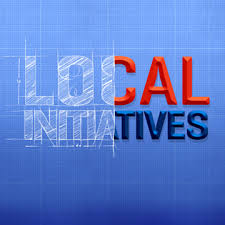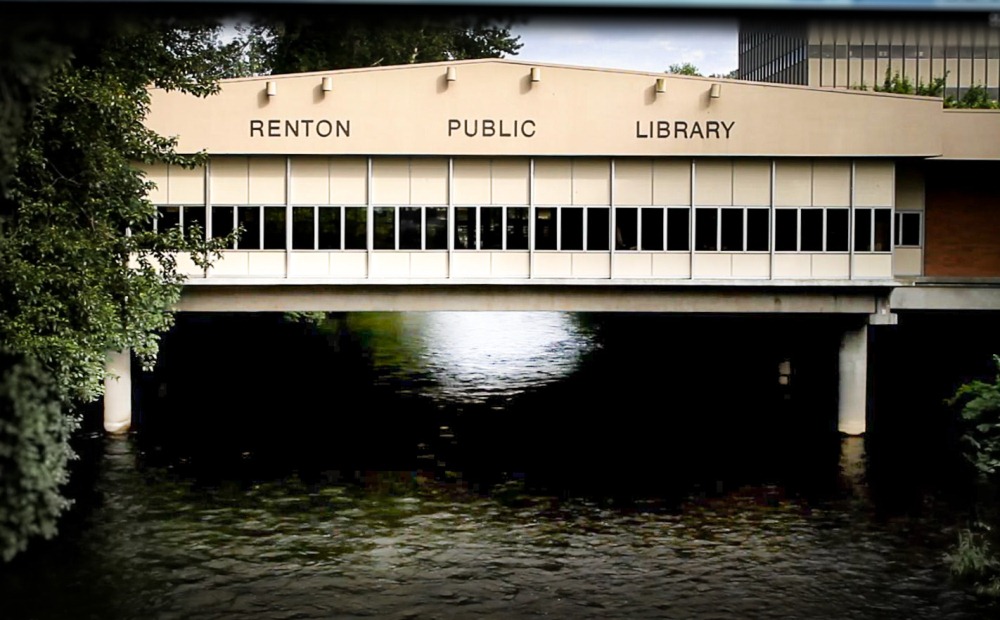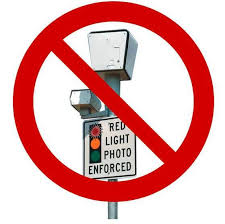
(This article was originally published on the Freedom Foundation blog on October 1, 2014, written by Glen Morgan, while he was the Property Rights Director at the Freedom Foundation. The original article posting was deleted by the Freedom Foundation in 2017. It has been reposted here exactly as it was originally written. Some links no longer work and some original images are no longer included in the article)
However, in nearly every case where a local initiative has been attempted by the voters- local politicians and bureaucrats have utilized every legal, financial, and political resource at their disposal to suppress the rights of citizens to use the local initiative process.
The tradition of citizen initiative in Washington State is a cherished part of Washington State politics that is enshrined in the State Constitution (since 1912) and protected by a variety of state laws. Most attention is focused on the annual State- Wide initiatives that are frequently pushed by fiscally conservative citizens like Tim Eyman, but have included initiatives on Gun Rights restrictions, Animal Trapping Bans, repealing taxes, legalizing marijuana, and a wide variety of issues from every corner of the political spectrum. Some of them fail, and some succeed. Overshadowed by the state-wide controversy and campaigns for these citizen initiatives are the local initiatives, which have been reserved for the people in 6 of Washington’s 39 counties and in nearly 60 of the cities in Washington State.
Despite the fact that most politicians and bureaucrats in local government frequently claim to support the local initiative process and their desire for more voter participation in the political process, the recent history of local initiatives paints an entirely different picture.
Threatened by a vote of the people, most local politicians throw tantrums

I have interviewed a wide range of local civic leaders, politicians and bureaucrats over the past few years, and rarely will you ever find one of them disparaging the local initiative process—at least not publicly. They will also universally claim there is a need for more civic engagement. They despair over voter apathy as the modern evil of our time. This is true regardless what party the politician claims allegiance. It is hard to imagine a political activity that is more opposite from apathy than a local citizen initiative.
A local initiative takes work. Citizens have to organize to collect signatures. Hundreds of signatures in small jurisdictions and many thousands in larger locales like the City of Seattle or King County. This takes time, energy, organization, and stamina. The volunteers (and they usually are volunteers, unlike the trend in state-wide initiatives) must doorbell, work outside stores, or go to public events like parades to collect signatures. Only registered voters in the local city or county where the initiative will be on the ballot can legitimately sign the initiative. In some places like the City of Vancouver, or Olympia, the local voter may not realize they have an address from that city but they don’t live in the city limits. Their signatures would not be valid. It is a lot of work to get enough valid signatures, collect them, jump through the legal hoops and submit these initiatives to the city or county clerk to start the legal process.
Despite what politicians and bureaucrats say in public, their actions speak much louder than words. Usually they are protected from dealing with local initiatives because they are not a common occurrence in most jurisdictions. However, in nearly every case where a local initiative has been attempted by the voters- local politicians and bureaucrats have utilized every legal, financial, and political resource at their disposal to suppress the rights of citizens to use the local initiative process. The extreme effort these government bureaucrats and politicians have expended to deny a vote of the people on local issues is impressive and epic. If they worked this hard at almost any other aspect of their jobs, it is quite possible there would be fewer problems in local government today. However, even the most incompetent and apathetic politician or bureaucrat can be motivated to action when they realize their citizens actually want to vote on a local issue.
Let’s review just a few of the cases from the last 10 years or so:
A Short Shameful History of Local Governments Denying Voters the Right to Vote and Fighting Citizens Every Time
- Renton Library Initiative— In a classic case of the governing elite believing that they knew better than the people they represented, the City of Renton—led by their Central Planning Department and allied with the King County Library System decided that they wanted to abandon the historic Cedar River library and build a new, smaller library as part of some Central Planning visioning scheme. The citizens of Renton rebelled, and collected 6,383 signatures for an initiative to keep the library where it was. A massive campaign against the citizens who wanted to keep the library was waged by the Renton City Council, Renton City Planners, the King County Library System, and some local businesses convinced to financially support the politicians. Legal challenges were filed at every step of the process. Massive 40,000 piece taxpayer subsidized mailers were sent out by the King County Library System. Despite the obstacles, the delays, and the powerful forces arrayed against them, the citizens of Renton finally had their chance to vote on the initiative to keep their library in 2012, and they overruled the political elite with a 76% vote. This was a defeat of Goliath by David. Then the politicians even had a fascinating second temper tantrum after the vote went against them.

Reducing King County Council from 13 to 9 members—When Tim Eyman helped the local King County Corrections Guild obtain 71,000 signatures to reduce the members of the King County Council from 13 to 9, another epic political and legal battle was inevitable. Clearly, at least four of the council members had their jobs on the line, and legal challenges and political roadblocks proliferated. Eventually, the Washington Supreme Court had to get involved to allow the citizens a vote. In the end 56% of the voters agreed with this change in 2004. In the end, there was no more “Cadillac Council” despite every political and legal gimmick possible to keep extra politicians and staff on the public payroll.
Stop putting Fluoride in Our Water—Port Angeles—In 2006, two months after the City Council in Port Angeles approved the addition of the local initiative process (after the citizens signed petitions to force this to happen) to their municipal code, two local citizen groups filed an initiative that would prevent the City of Port Angeles from adding fluoride to their drinking water. The City Council used every legal maneuver they could to deny the citizens the right to vote on this issue, and they succeeded in stifling the citizens desire to vote which had been appealed to the State Supreme Court. In 2010, the Supreme Court supported the city and crushed the hopes of residents in Port Angeles to have fluoride-free water. The City of Port Angeles was able to convince the Supreme Court that they had the right to put fluoride in the city water and the citizens could have no sayin the matter. In an impressive dissent, Justice Sanders rightly recognized that this decision destroyed the local citizen initiative option.
No Red-Light Cameras—City of Mukilteo—Tim Eyman was no stranger to the initiative process, and in addition to his frequent forays into higher profile state-wide initiatives, he also became engaged in a local initiative in the City of Mukilteo that would allow the citizens to vote on whether they wanted Red-Light Cameras in their city. The City Council even passed an ordinance getting rid of their red light cameras (temporarily) to preempt the feared initiative. Despite the legal threats and challenges thrown up by the Mukilteo City Council, the citizens in 2010 voted over 70% against red light cameras. This wasn’t what the Mukilteo City Council wanted, so they spent the money, time, and energy to overturn the will of the people and the Washington Supreme Court helped them overturn the will of the people in 2012

- Let Citizens vote to approve or deny new debt in the City of Sequim—While local government is already required to let the people vote on new debt, there was one type of bonding debt that local government could incur without a citizen vote. This was debt bonds which would be repaid by an existing revenue stream (usually an already approved tax or fee charged by the city). Sequim citizen Paul Malkasian in 1996 filed a local initiative in the City of Sequim, which passed by over 70% of the voters, which would require voter approval for this type of bond debt as well. The Sequim City Council was enraged, and fought this voter oversight for 10 years—losing at every step of the various legal challenge process until finally, they were able to get a supportive Supreme Court decision in 2006 denying the citizens the right to vote to approve or deny these debts in their city. The Sequim City Council also rewarded the contract attorney Craig Ritchie who helped them in this decade long battle with a permanent taxpayer funded staff position so that they could continue to deny the citizens of Sequim the right to vote on local initiatives.
- Restore District Voting—City of Seattle—In 2013, a local Charter Amendment was put on the ballot after over 46,000 signatures were submitted to the City Clerk. Titled Prop 19, this Charter Amendment restored district voting in the City of Seattle which meant that 5 of the 7 City Council members would have to win election from the district in which they live (rather than from the whole city as the current city council had been elected). The supporters argued that this would restore more local accountability and diversity for the Seattle City Council. The Seattle City Council was not happy about this, and tried to confuse the effort by putting a competing referendum on the ballot. While they did raise a fuss and convinced some political insiders to try to discredit the effort, the supporters prevailed with over 65% of the vote.
- Many more Examples—Efforts to reverse Storm Water Fees included some questionable legal attacks on the petition gatherers in San Juan County in 2008. Attempts to repeal a Critical Area Ordinance in Clallam County. Efforts to repeal GMA decisions in Whatcom County. There are many more examples of local government attacking the citizens and activists who dare to engage in this process.
- One Recent Exception—City of Sea-Tac $15 Minimum Wage—In the only recent example of an initiative that wasn’t fought by the local city council, the $15 Minimum Wage Initiative stands out. In 2013, public sector unions spent over $1 million to get this initiative on the ballot in SeaTac. The City Council assisted in this process and used the bureaucracy to pave the way for a vote. In this one example despite the large amounts of money spent by Public Sector Unions—both to elect council members favorable to them and to pass this initiative—it still only passed by the slimmest of margins—a little over 70 votes. As an exception to the rule, this one stands alone because one large special interest – the Public Sector Unions – had already been able to install politicians favorable to its cause, but these politicians still did not have the fortitude to actually vote on this ordinance directly. So, they just got out of the way of the local initiative process, and let it proceed while most of the City Council cheered from the sidelines. Despite all the millions of dollars spent on this local initiative, it still barely passed.
Lessons, false promises, and possible reforms for the future
This trip down memory lane is useful for concerned and involved citizens moving forward. Most people would agree that this history is not a good one for representative government. When elected officials claim to desire citizens participate in the political process, and then these same officials move heaven and earth to oppose citizen participation, there is a problem.
This should also serve as a good lesson for the citizens of Clark County who are currently considering a very flawed County Charter which includes local initiatives for citizens. The promise of the local initiative process is a false one. Judging from nearly every recent local initiative in Washington State, the proposed future county council would actively oppose every local citizen initiative just like local politicians and bureaucrats throughout Washington have done in the past.
The Washington State Supreme Court has also been no friend to the local initiative process, and has clearly strayed from the history of supporting citizens who dare to get involved in local government. Despite the clear language of the original law, this loss of direction and understanding by the Supreme Court should be troubling to all concerned citizens in this state.
If there is to be a local initiative process that would actually exist in fact rather than theory in the future, some reforms are necessary. In some cases, these reforms wouldn’t be necessary if the Supreme Court could read the laws as they were written or if local government were not so hostile to voters who dare to participate in government.
Legislative reform at the state level is required if this right of citizens is going to exist in the future on any issue other than imposing higher minimum wages and give always to public sector union bosses. However, here are a few suggestions to improve the process and restore the original promise of the local initiative process:
- Harmonize/Fix Conflict in State Law on date Requirements for Local Initiatives. There is a clear conflict in state law between the local initiative dates defined in RCW 35.17.260 and RCW 29A.04.330. Local jurisdictions cherry pick whichever one will help them sabotage the voter effort. It would be good policy to fix this. Our recommendation would be to delete the specific dates in RCW 35.17.260 and just reference RCW 29A as the statute that controls for the date. This fix would eliminate pointless and unnecessary legal conflict.
- Require All local initiatives to be on the General Election—This would additionally help with some of the confusion and legal conflict defined above, and it help ensure maximum voter participation on these issues when they are on the ballot. This would also reduce the ability of special interests on any side of the issue to utilize voter apathy or fatigue to either pass or kill a local initiative easier than it should be during the regular General Election when the largest percentage of voters will be participating. A cutoff date to force city councils to put initiatives on the “next” general election ballot would be required as well Accordingly, we should add that every initiative that is certified 45 days or more from the date of the general election must appear on the earliest occurring general election ballot.
- Eliminate Pre-Election Challenges—For some reason, state courts have allowed pre-election challenges to local initiatives (unlike any other part of the legislative process). This is not in harmony with other legislative processes or state initiatives. There are already two significant barriers in this process that must be hurdled by local initiative supporters—collecting signatures and a vote of the people. After a local initiative has gone through these processes it can still be challenged in court like any other ordinance or law passed by the governing body.
- Add a Clause in the Local Initiative Statute that would clarify post adoption challenges: The courts have invented challenges that could be used to kill local initiatives by the governing body that do not exist in State Law, or which have been allowed to occur due to a lack of clarity in State Law. The following Clause would help clarify this historic confusion and hopefully ensure less frivolous litigation in the future:
“Any local initiative will be considered valid and within the scope of the local initiative and referendum power if the same ordinance could be passed by the local governing body as an ordinance or law as written. Unless the subject matter is explicitly excluded from the power of local initiative by the Washington State Legislature, it can be passed as a local initiative. The subject matter of initiatives and referendums may never be declared invalid on the basis of implication.”
- Fix City Clerk vs. County Auditor confusion: This is a less significant change, but a good policy fix regardless. Since the County Auditor is the legal entity which must certify the signatures on the petitions anyway—it is more logical that the petitions for any local initiative in that county be submitted to the County Auditor first. The County Auditor would then be required to immediately inform the respective City Clerk once they have received the signature petitions. This change just eliminates possible confusion between City Clerks and the County Auditors and this would make it easier for County Auditors to fulfill their statutory obligations determining sufficiency of the signatures without the possibility of being held in legal jeopardy if the City Clerk fails to provide the petitions to the County Auditor in a timely manner. (RCW 35.17.280)
- Fix the “Do Nothing” Loophole—A favorite tactic of local politicians and bureaucrats to deny citizens the right to vote is to do nothing and force the citizens to sue them to do their job. To prevent this troubling trend in the future, a more efficient remedy would be to impose civil penalties on the elected officials to be no less than $100 per day per elected official and City or County Manager in the jurisdiction where the local initiative was filed. This will encourage the politicians and senior bureaucrats to obey the law and do their job.
Or Alternatively:
Under existing law (see RCW 35.17.260), a city council or commission has 20 days to either adopt unaltered the proposed initiatives as ordinances or refer the initiatives to a vote of the people. After the petitions are certified by the auditor as sufficient, the Auditor should afford the City Council 20 days to pass the ordinances, should they so choose. At the end of 20 days, unless the ordinances have been passed unaltered by the respective city council, the Auditor must place the initiatives on the ballot for a vote of the people of the respective city. The city or county council could still choose to do nothing, but this would not prevent the initiative from being on the ballot.
There may be some other reform ideas out there, but this would be a good start. We’ve had enough false promises in Washington State. Let’s make the local initiative process relevant once again.
Recent Stories on Local Initiatives in Washington State (author update – dead links have been eliminated)
- Local Governments Throw a Tantrum in Response to Citizen Initiatives
- Shelton Commissioners Ignore State Law, Refuse to Send Labor Reform Initiatives to Public Vote
- Judge Proves to be Huge Disappointment, Citizens Press on to Vindicate their Rights
- Changing the Game: Citizens Go on Offense
- Judge Delays Decision on Sequim Labor—Reform Measures
- Port Angeles Judge to Decide Whether Sequim Can Keep Labor Reform Initiatives Off Ballot
- Sequim City Council Votes to Deny Voters a Voice
- MoveOn.org Moves Into Sequim and Opposes Transparency and Choice
- Clallam County Auditor Certifies Signatures for Two Citizen Initiatives
- Shelton Citizens Hope to Reform City’s Labor Policy
- Citizen Initiatives a First For Chelan
- Sequim Activists Turn in Labor Reform Initiative Signatures
- Making Political Change in Your Local Government
- SeaTac $15 Minimum Wage Barely Passes in Final Vote Tally, Recount May Follow
- SeaTac City Council Oks $15 Minimum Wage for Public Vote
- SeaTac $15 Minimum Wage Survives Recount
- Council to Challenge Stormwater Referendum
- Clallam Challenges Repeal Bid
Renton Library
- A Childish $10Million Tantrum in Renton to Punish Voters
- This Renton Vote Ensures That a River Continues to Run Through it
- Updated: Audit Validates Library Petitioner’s Signatures
- After Amazing Grass-Roots Campaign, Renton Cedar River Library wins 76% to 24%!
King County “Cadillac” Council Reduction
- Eyman Vows Lawsuit on Initiative to Downsize county Council
- I-18 King County Voter Pamphlet Page—2004
- I-18 King county Results -2004
No Fluoride in our Water—Port Angeles
- Court Denies Fluoridation Foes Appeal
- Yes to Clean Water—Port Angeles (good history with links)
- City of Port Angeles v. Our Water—Our Choice
No Red Light Cameras—Mukilteo
- State High Court Strikes Down Red-Light Initiatives
- Mukilteo Red Light Camera Initiative Moves Forward Despite Council Vote
- Eyman’s red light camera initiative passes in Mukilteo
Don’t Increase Dept without Voter Approval—City of Sequim
- City of Sequim v. Malkasian
- Sequim: City to Continue Court Fight Over Initiative
- Vote not Required on Revenue Bonds
Restore District Voting in Seattle—Charter Amendment 19
- Supporters of District Voting – Website
- Claims that the Seattle Charter Amendment 19 are “racist”
- Initiative to Elect Seattle City Council by Districts will likely make Ballot
- Why you Should Vote “No” On Seattle District Elections
- Vote No on Charter Amendment 19 to Elect Seattle City Council by District
- Seattle Times Editorial—Yes on Seattle Charter Amendment 19; No on Proposition 1 (City Council created version)





